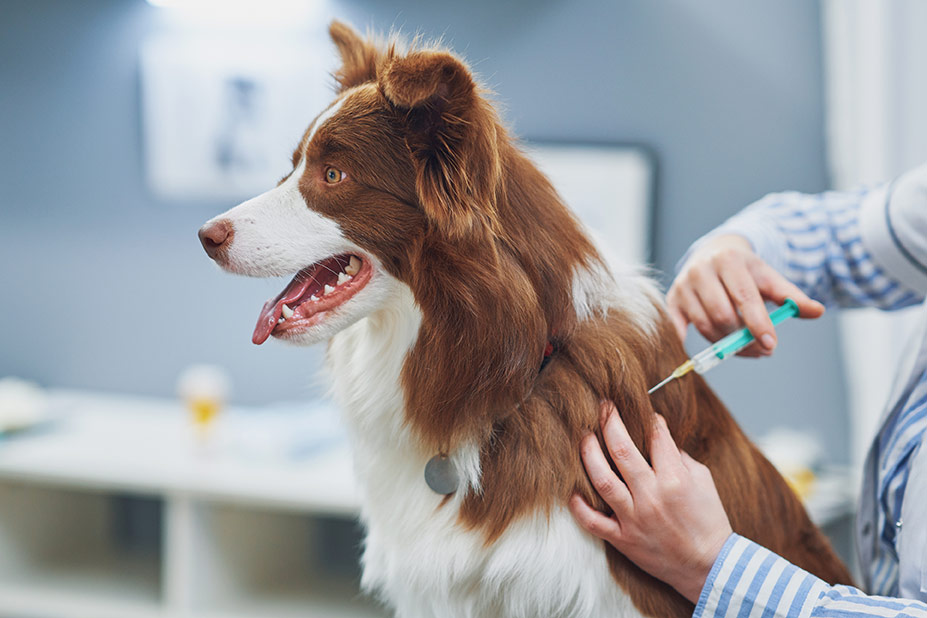Vaccinations are a crucial part of responsible pet ownership. Just as humans need immunizations to prevent serious diseases, pets require vaccines to protect them from a range of illnesses—some of which can be fatal or even transmissible to humans. In the U.S., staying up to date on pet vaccinations is more than just a health measure; it’s an act of love and protection for your furry companion.

Why Vaccines Are Important for Pets
Vaccines work by stimulating your pet’s immune system to recognize and fight specific diseases. Without vaccines, pets are more vulnerable to infections that can spread quickly and have devastating outcomes. Vaccinations are especially important for puppies and kittens, who are born with limited immunity. By providing timely vaccines, pet owners can help prevent outbreaks and keep the broader animal community safe.
Vaccinating pets also helps protect public health. Diseases like rabies are zoonotic, meaning they can spread from animals to humans. Vaccinating your pets not only keeps them safe but also helps reduce the risk to your family and community.
Core vs. Non-Core Vaccines
Veterinarians generally classify pet vaccines into two categories: core and non-core.
Core Vaccines are recommended for all pets, regardless of lifestyle or environment. These include:
- Dogs: Rabies, Distemper, Parvovirus, Adenovirus (Hepatitis)
- Cats: Rabies, Feline Calicivirus, Feline Panleukopenia, Feline Herpesvirus
Non-Core Vaccines are optional and depend on factors such as your pet’s lifestyle, location, and exposure risk. For example:
- Dogs: Bordetella (kennel cough), Lyme disease, Leptospirosis, Canine Influenza
- Cats: Feline Leukemia Virus (FeLV), Chlamydia
Your veterinarian will help determine which non-core vaccines are appropriate based on your pet’s daily activities and health status.
Vaccination Schedule
For young animals, vaccines usually begin at 6 to 8 weeks of age and continue every 3–4 weeks until about 16 weeks. Booster shots are typically required annually or every three years, depending on the vaccine type.
Here is a general guide for dogs and cats:
Dogs:
- 6–8 weeks: DHPP (Distemper, Hepatitis, Parainfluenza, Parvovirus)
- 12–16 weeks: Rabies
- Optional: Bordetella, Lyme, Leptospirosis based on need
Cats:
- 6–8 weeks: FVRCP (Feline Viral Rhinotracheitis, Calicivirus, Panleukopenia)
- 12–16 weeks: Rabies
- Optional: FeLV for outdoor or high-risk cats
Maintaining a consistent vaccine schedule is essential to building and sustaining your pet’s immunity over time.
Where to Get Pet Vaccines
Vaccinations are widely available across the U.S. at veterinary clinics, pet wellness centers, and even mobile pop-up events. Here are some options:
- Private Veterinary Clinics: Offer tailored vaccination plans with full health evaluations.
- Low-Cost Vaccine Clinics: Operated by animal shelters, nonprofits, or mobile services to help reduce costs.
- Retail Pet Stores: Chains like Petco and PetSmart partner with veterinary groups to provide in-store vaccine events.
- Local Animal Shelters: Some offer free or discounted vaccine days to encourage community pet health.
How Much Do Vaccines Cost?
The cost of pet vaccines varies, but generally:
- Core vaccines: $15–$40 each
- Rabies vaccine: Often required by law, typically $15–$25
- Full annual vaccine package: $75–$150 at most vet clinics
- Low-cost or nonprofit clinics: May offer vaccines starting at $10 per shot
Many communities also have charitable organizations or grants that provide free vaccinations for pet owners facing financial hardship.
Vaccine Safety and Side Effects
Most pets experience no adverse effects after vaccination. However, mild side effects such as temporary soreness, fatigue, or low-grade fever may occur. Serious reactions are rare but can include allergic responses like swelling or vomiting. Always monitor your pet after a vaccine and contact your veterinarian if you notice anything concerning.
The benefits of vaccination far outweigh the minimal risks, and skipping vaccines can expose pets to life-threatening diseases.
Keeping Records and Staying Updated
Always keep a copy of your pet’s vaccination records. These are often required for grooming services, travel, dog parks, and boarding facilities. Your vet will also remind you when booster shots are due, but it’s helpful to set reminders yourself to avoid lapses in protection.
In some states, rabies vaccination is not just recommended—it’s required by law. Failure to comply can result in fines or restrictions, especially if your pet bites someone or is exposed to wildlife.
Conclusion
Vaccines are one of the most effective tools for safeguarding your pet’s health and ensuring they live a long, happy life. By staying informed about recommended vaccines, adhering to a regular schedule, and working closely with your veterinarian, you’re providing your furry friend with the best protection possible. Whether you’ve just adopted a new puppy or are caring for an older cat, it’s never too late to prioritize their health through proper vaccination.
Let your love for your pet show through action — a simple shot today could save their life tomorrow.
